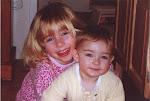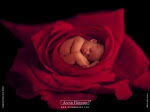
Thursday, March 27, 2008
This is my favorite book about alcoholism, of course with the exception of The Big Book and other AA writings. I've often recommended this book to my friends and family who are NOT alcoholics or addicts, as it so perfectly describes the obsession and craving of addiction in terms that they can understand. The following are exerpts from 3 reviews of this book.
Drinking memoirs typically concern the escapades of a lovable roue and his triumph over alcohol. For the most part, they are written by men who have stopped drinking with or without the help of Alcoholics Anonymous.
In contrast, Drinking: A Love Story is written by a woman, and as psychotherapists have observed, women's alcoholism often follows a different trajectory from that of men.
In contrast, Drinking: A Love Story is written by a woman, and as psychotherapists have observed, women's alcoholism often follows a different trajectory from that of men.
Knapp's symptoms begin before she has her first drink. As a young child, she describes compulsive rocking behavior, probably used as a means of self-soothing. She starts seriously drinking at the age of 16, having been sneaking wine at home since 14. In her 20s, exhibiting all the symptoms of an anxious, overachiever with no sense of self, Knapp develops an eating disorder. She reaches her 30s with a stable career as a respected journalist, while adding to her addictions a series of unhealthy relationships with men.
In 1984, at the age of 25, she enters psychotherapy for help with the anorexia. Several years later, she joins a support group for women with eating disorders. During this time, Knapp moves from anorexia to alcoholism, staying in therapy, trying to figure out why she is so unhappy.
It is hard to select one incident in the book as "the one" that moves Knapp to stop drinking. Her parents' painful deaths-both died of cancer one year apartseveral analytic comments made by her father before his death, and nearly dropping a friend's child while Knapp was drunk, all seem to have propelled her into an Alcoholics Anonymous rehabilitation program.
In 1984, at the age of 25, she enters psychotherapy for help with the anorexia. Several years later, she joins a support group for women with eating disorders. During this time, Knapp moves from anorexia to alcoholism, staying in therapy, trying to figure out why she is so unhappy.
It is hard to select one incident in the book as "the one" that moves Knapp to stop drinking. Her parents' painful deaths-both died of cancer one year apartseveral analytic comments made by her father before his death, and nearly dropping a friend's child while Knapp was drunk, all seem to have propelled her into an Alcoholics Anonymous rehabilitation program.
Knapp compares her obsession with alcohol to a longstanding love affair with a remote, unresponsive man. Her denial of the destructiveness of alcoholism in her life is similar to that of women who delude themselves about an unfaithful lover. She calls her recovery, "a divorce from white wine."
Fifteen million Americans a year are plagued with alcoholism. Five million of them are women. Many of them, like Caroline Knapp, started in their early teens and began to use alcohol as "liquid armor," a way to protect themselves against the difficult realities of life. In this extraordinarily candid and revealing memoir, Knapp offers important insights not only about alcoholism, but about life itself and how we learn to cope with it. It's about passion, sensual pleasure, deep pulls, lust, fears, yearning hungers. It's about needs so strong they're crippling. It's about saying good-bye to something you can't fathom living without.
Fifteen million Americans a year are plagued with alcoholism. Five million of them are women. Many of them, like Caroline Knapp, started in their early teens and began to use alcohol as "liquid armor," a way to protect themselves against the difficult realities of life. In this extraordinarily candid and revealing memoir, Knapp offers important insights not only about alcoholism, but about life itself and how we learn to cope with it. It's about passion, sensual pleasure, deep pulls, lust, fears, yearning hungers. It's about needs so strong they're crippling. It's about saying good-bye to something you can't fathom living without.
"I loved the way drink made me feel, and I loved its special power of deflection, its ability to shift my focus away from my own awareness of self and onto something else, something less painful than my own feelings. I loved the sounds of drink: the slide of a cork as it eased out of a wine bottle, the distinct glug-glug of booze pouring into a glass, the clatter of ice cubes in a tumbler. I loved the rituals, the camaraderie of drinking with others, the warming, melting feelings of ease and courage it gave me.
Our introduction was not dramatic; it wasn't love at first sight, I don't even remember my first taste of alcohol. The relationship developed gradually, over many years, time punctuated by separations and reunions. Anyone who's ever shifted from general affection and enthusiasm for a lover to outright obsession knows what I mean: the relationship is just there, occupying a small corner of your heart, and then you wake up one morning and some indefinable tide has turned forever and you can't go back. You need it; it's a central part of who you are."
"One of the first things you hear in AA - one of the first things that makes core, gut-level sense - is that in some deep and important personal respects you stop growing when you start drinking alcoholically. The drink stunts you, prevents you from walking through the kinds of fearful life experiences that bring you from point A to point B on the maturity scale. When you drink in order to transform yourself, when you drink and become someone you're not, when you do this over and over and over, your relationship to the world becomes muddied and unclear. You lose your bearings, the ground underneath you begins to feel shaky. After a while you don't know even the most basic things about yourself - what you're afraid of, what feels good and bad, what you need in order to feel comforted and calm-because you've never given yourself a chance, a clear, sober chance to find out." p. 75




No comments:
Post a Comment